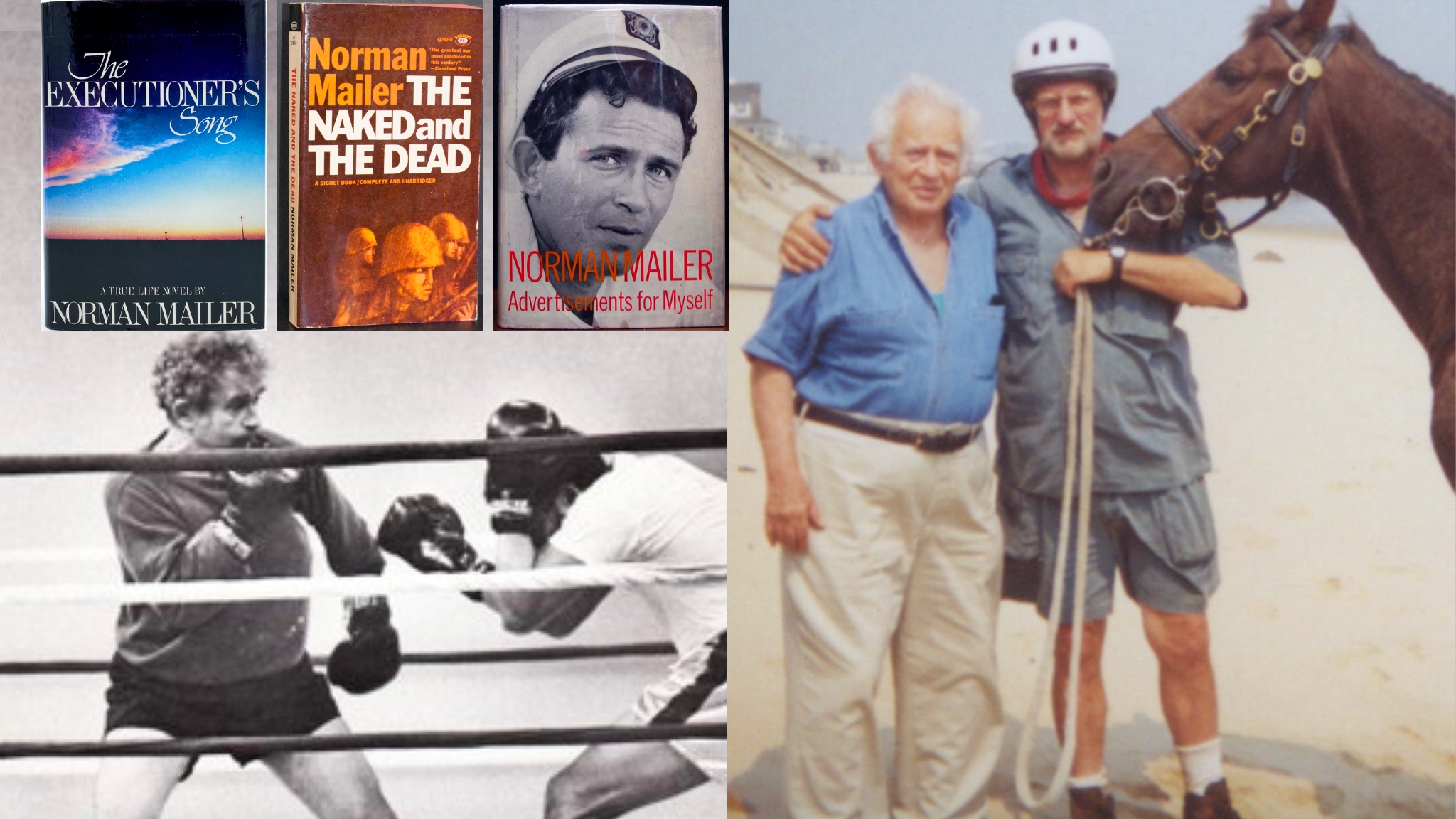Norman Mailer would have been 100 years old this past January. He was my first boss out of journalism school in 1967, and he was the first genius I ever met.
Before I met him in 1966, he was already one of my heroes. His 1959 book Advertisements for Myself, which I read when I was 16, astounded me. It is a collection of essays, fiction, polemics, and autobiography, unfiltered to allow him to be seen equally as genius and fool, champion and clown. It was a kind of journalism I had never encountered: a mix of objective and subjective, a search for the truth no matter where it took him.
Mailer’s books changed how we read and laid the groundwork for what would be “The New Journalism” of Tom Wolfe, Hunter S. Thompson and all who followed.
But more than just a literary figure, Mailer was a two-fisted, bar-brawling tough-guy Jewish intellectual, a cross between biker and rabbi.
In the summer of 1967, my girlfriend managed to get a job as cook and housekeeper for the Mailers in Provincetown, MA. I used to pick her up after work. One time, he invited me to his deck and made us gin and tonics. In the middle of our first conversation, I knew that Norman’s brain wasn’t like anyone else’s I’d ever met. It wasn’t just a difference in quantity of brainpower; it was a difference in quality.
He asked if I boxed. I didn’t. Would I be interested in learning and becoming his sparring partner? Boxing became a central part of my relationship with Norman.
The best thing about being with Norman was what you took home. He taught me to box, sail, rock climb and hike as well as how to navigate through language from the formal to the obscene.
Over the course of our acquaintance, he taught me many life lessons. Here are 10 of my favorites:
- How to re-hydrate a stale bagel. Cut the bagel in half and finger paint the inside of the bagels with water and then toast normally. It works every time.
- Be professional. No matter what kind of mood Norman was in, how drunk he got the night before, he would always drag himself off to his studio and write. Always the professional.
- No self-pity. Self-pity, he would say, can become an attractive melancholy comfort and you must avoid it. It’s one of the worst vices because it not only keeps you from altering the situation you need to change, it’s a magnet for other vices like gambling, alcohol, drugs and dangerous sex. You can allow yourself sadness for a certain period, but too long and/or too deep and it becomes self-pity.
- How to clean a messy house in 10 minutes. One evening, Norman got a call that someone was stopping by in 10 minutes. My girlfriend and I had just returned from being away for two days and the house was a mess. With no time to clean, Norman shouted to all of us to set everything we could at right angles. It works. Squaring everything off visually make things look more than neat.
- Before the war in Iraq he said, “We’re starting something we can’t finish without changing the nature of American democracy.” He felt our misadventure in Iraq would be so enormous it would threaten America from the inside and would serve not to halt but to feed the firestorm of terrorism. He still felt that until the end.
- “The most important thing in a book or movie is mood, and it has to flow like a river.” I adopted it into all my work including making TV commercials and infomercials.
- When writing, avoid adverbs, be scarce with adjectives, and let nouns and verbs do all the heavy lifting.
- Good is the enemy of Great. Good is so near terrific, it makes us settle. Don’t settle. Know the difference between good and great, and if time and/or the money allow it, go for great.
- How to get more comfortable in your own skin: When I was 22 and having a bad time after my girlfriend left me, I asked him how one gets more comfortable being alone. He said much of it can come from aiming for success and achieving success. You gain comfort doing the best you can and enjoyment from your attempts, your successes and the fruits of your efforts.
- Avoid the punishment of instant karma that can occur if you insult a warrior with condescension. We decided to box two three-minute rounds once. I was 35. In round one, I was thinking about cutting him a little slack because of his age when he delivered a right that smashed me back two feet, a left jab and another punishing right cross. I had broken two rules of combat and deserved the beating: Never insult a warrior with condescension, and when you fight, don’t think.
Norman Mailer was a great father who raised nine well-adjusted children. He was one of the funniest people I ever met. He was a man who after five marriages spent his sixth and the last 35 years with the right woman. He was a warrior, an oracle, a poet and a genius.




